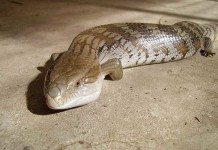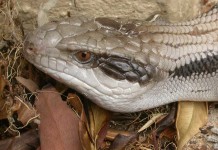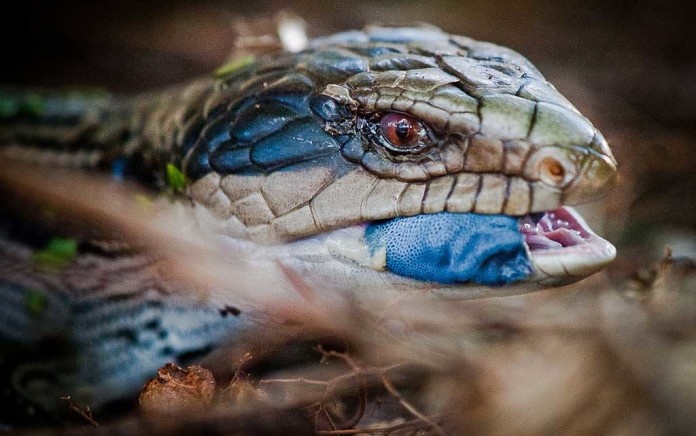Blue tongue skink lizards are animals of the wild, therefore trying to escape can be a natural instinct for them but there are few basic tricks and tips that can help you prevent their escape. Here are some of the basic ones:
- Make them feel at home: The most important thing to do is to make them feel at home by introducing them in a large enough enclosure in which they can easily move around without a lot of difficulty. Along with this, make sure you add a few plants and branches in the cage to give it a natural look. Skink lizards live in semi humid places, so it may be a good idea to add moss etc. in the cage to make it a little humid. In addition to this, do not forget to provide proper lighting and temperature to your pet. The more comfortable it is in its enclosure, the lesser are the chances of it trying to escape your home.
- Feeding: Analyze what your blue tongue skink likes to eat and provide it with all the necessary nutrients that are required for its growth and good health. When well fed, the lizard can get very lazy and may not think of escaping at all.
- Bonding: Since you have bought it as a pet, it is your duty to make a strong bonding with your lizard, so that it does not feel lonely and think of running away. When you take it out initially, it may be a good idea to introduce a leash or to stay close by the animal. So that even if it tries to escape, you are able to catch it. Apart from this, try to feed it with your own hands so that it gets used to you to develop a bond of friendship and thus do not try to escape.
- Introduce a Mate: You can also try to introduce a mate to reduce the loneliness of your lizard but this can be a gamble i.e. it may happen that the newly introduced mate and your pet do not get along very well. Do not introduce a partner of the same gender since there are chances that the two will end up fighting and injuring themselves.
As already mentioned, blue tongue skinks are lazy creatures, therefore the chance of them trying to escape are very low. However, keeping guard for a few days may be a preferable option to ensure that the animal is comfortable in its cage and is not looking for ways to run away.












